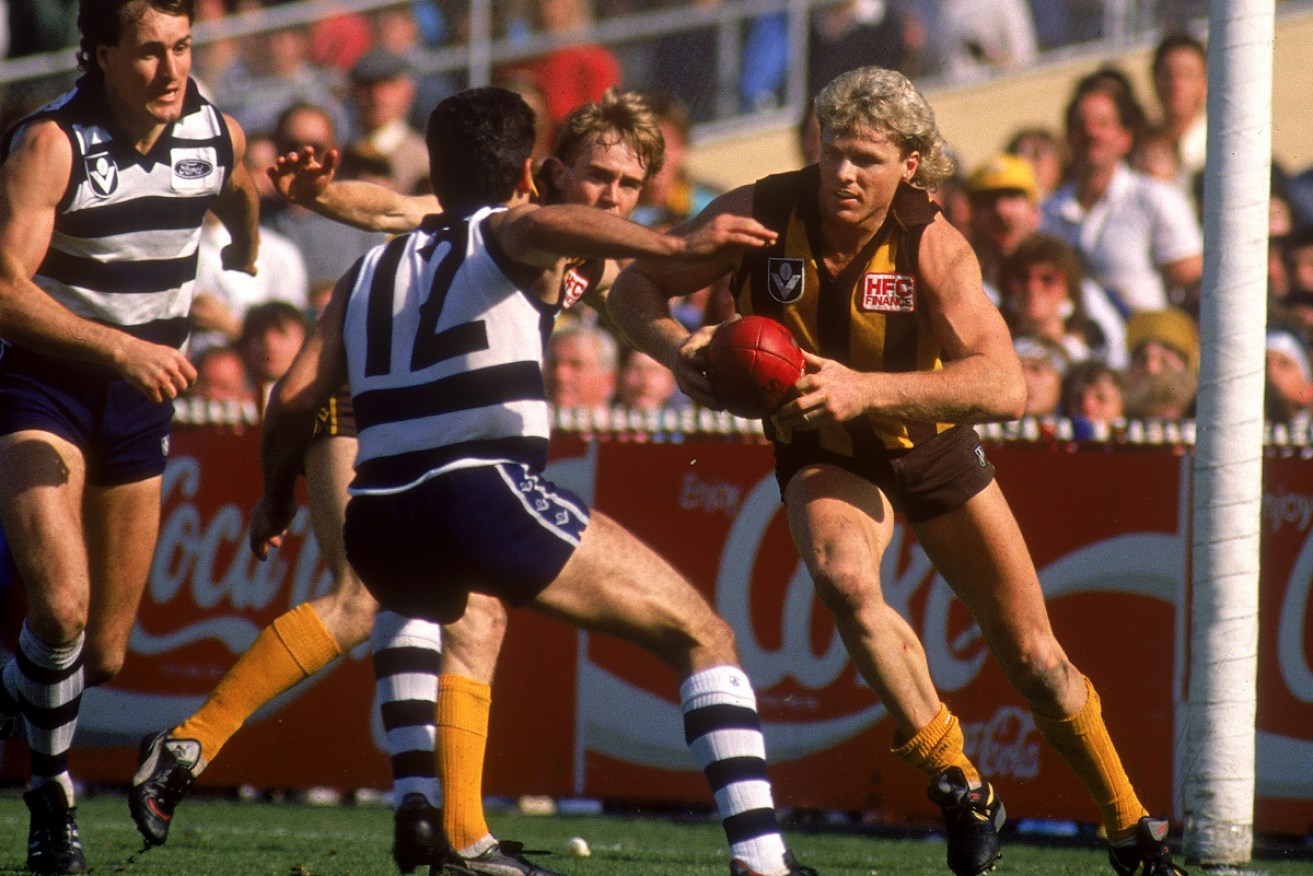Nathan Burke: Heads up to old-timers, times have changed


Dermott Brereton played in a time when players needed to worry less about incidental head-high contact. Photo: Getty
What is more embarrassing? Missing a goal from point-blank range or pulling out of a physical clash?
Ask any player and the answer will undoubtedly be the latter.
Pulling out is by far the worst sin a footballer can commit; especially if you are a powerful captain of an AFL team.
Unfortunately for Adelaide’s Tex Walker, his ground-ball effort against Shannon Hurn last week was – on the surface – not pretty.
Predictably it received great scrutiny from commentators and was seemingly symptomatic of everything that is wrong with the Crows, modern football, the rules and his leadership.
Even more predictably, past players whose memories get shorter the longer they are out of the game lined up to pot the Adelaide big man.
Dermott Brereton used words like “unacceptable” and claimed Walker had failed his teammates, while comparing Walker to former Hawthorn leaders of the 1980s like Leigh Matthews, Michael Tuck and Gary Ayres.
The suggestion was that these guys revelled in opportunities to demonstrate their bravery and would never pull out of a contest.
I have no issue with Brereton’s recollection of his playing days, just its relationship with the modern game.
Times have changed. Once upon a time players desperate to impose their toughness on a game could do so with almost reckless abandon.
Rules, penalties, increased knowledge of head injuries and sensitivity of viewers has meant players simply can’t contest the ball that way any more.
Take the scenario Walker found himself in, with a ground ball and two players coming from opposite directions.
In the ’80s the choices were simple and the repercussions few.
Go as hard as you can. If you got there first then you had better brace yourself for the contact that will be coming. If you got there second you had better make your opponent earn it.
This meant bowling over the player and, as long as you didn’t use a knee or elbow to do it, then you were generally good to go.
If head contact was made then the injured player should learn to protect himself better.
If you didn’t want to stay on your feet, you could dive on the ball instead. This was usually the preferred option because it avoided the often-inevitable head clash that occurs when two players are at the same height bending for a ball.
These days’ sliding or diving is no longer an option as it is simply against the rules. Quite stupidly, in my opinion, as a player going low rarely causes leg injuries and always prevents head injuries.
Staying upright isn’t an option as it will most likely be interpreted as a bump and as we know, even if you do everything correctly in terms of technique, you are liable for any damage you do.
The match review officer is always lurking in the background.
Therefore, if in a split second you decide you are going to be second to the ball, it is now feasible that you choose to slow down and let the other player get there first.
I almost feel traitorous suggesting this, but it’s the truth. It’s the future of football.
You simply can’t do what you used to be able to do on a field; especially if you want to play every week.
The rules and repercussions are too ambiguous to take the chance.
Look at the old highlight reels of the brutal clashes and I bet you’ll see one player going the ball, while the other cleans him up. That stuff wasn’t tough, it was dirty.
Thankfully elbowing a player, shirtfronting him or whacking him from behind has largely been eradicated … for the betterment of the game.
The sooner we rid ourselves of the notion that a player’s toughness directly correlates to his leadership, the better we will all be. Fairness and leadership are far better companions.
In the new AFL, discretion is absolutely the better part of valour.
Nathan Burke is a former St Kilda captain who played 323 AFL games for the Saints, winning three Trevor Barker Awards as best-and-fairest player.








